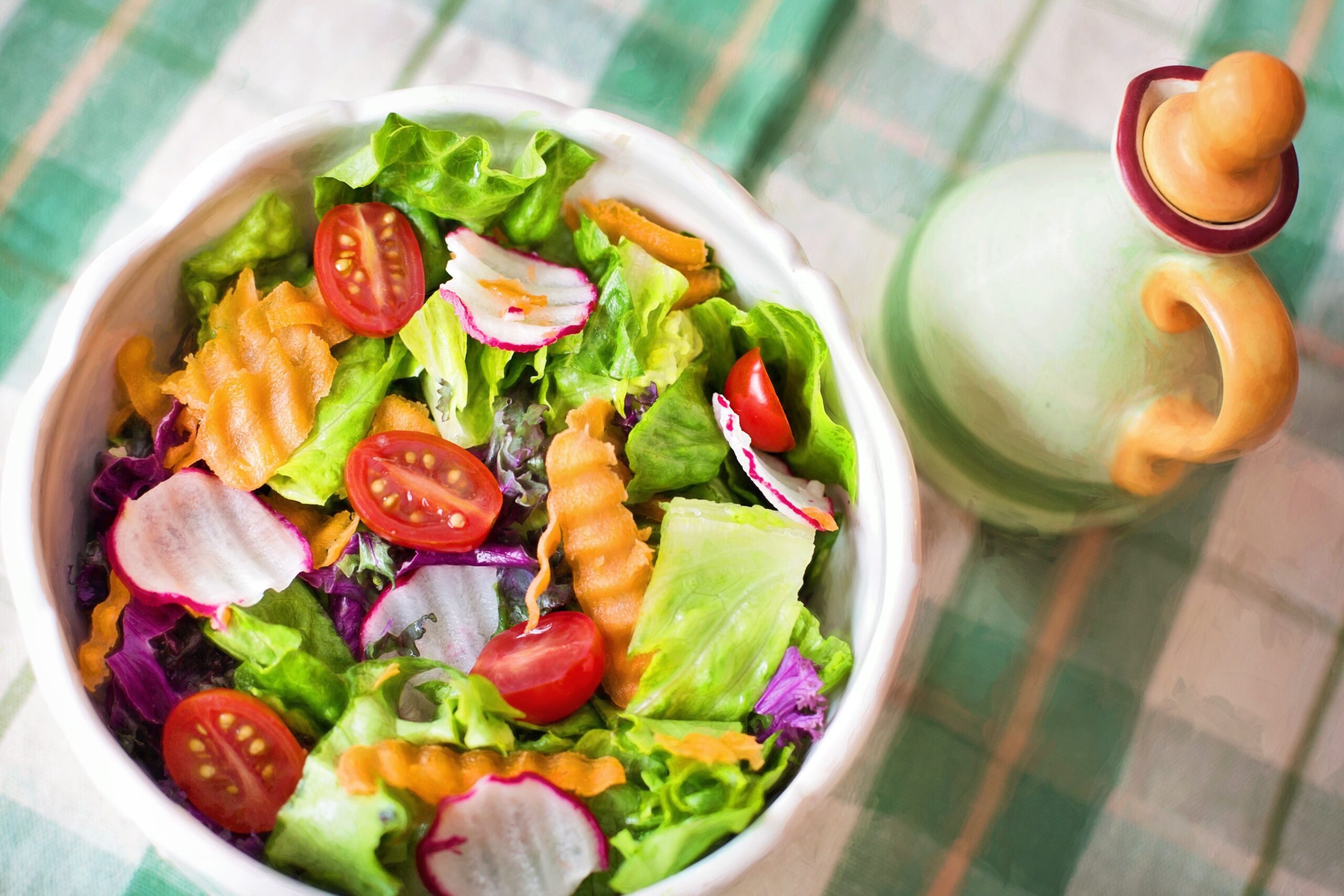As summer approaches it’s a great time to start indulging in delicious, refreshing salads to help increase your nutrient intake and cool down on long, hot days. Versatile and filling, salads can be combined with many different types of proteins and flavorful dressings and are ideal for lunches and evening meals.
At The East West Way we’re inspired by both the ancient wisdom of Ayurveda and modern science, which is increasingly confirming the previously anecdotal insights contained within this thousand-year-old philosophy. Although salad dressings can be healthy and add a lot of flavor to our meals, often they contain harmful toxins and fats which can have the opposite effect. Keeping salad dressings clean, focused on healthy fats and rich in natural seasonings can ensure we maintain the benefits and can even unlock some additional nutrients from the food we eat.
What is Ayurveda?
Ayurveda is an ancient system of holistic medicine which originated in India over 5000 years ago. Closely linked with other traditional holistic systems such as TCM (Chinese Medicine), Ayurveda is preventative at its heart, with many different techniques and systems advised to keep body and mind free from disease.
The system is complex, but in simple terms it works around balancing the three doshas or ‘constitutions’ which each have their own characteristics – Vata, Pitta and Kapha. According to Ayurveda a person is naturally dominant in one or more of these doshas, but over time they can become imbalanced, causing disease.
How can Ayurvedic influences support better wellbeing?
Ayurveda was developed thousands of years ago when daily life looked very different – but it has so much to offer alongside our busy lifestyles of today. Many modern diseases and conditions, in particular chronic illnesses, can benefit from the implantation of Ayurvedic techniques.
Because Ayurveda treats the root cause of illness rather than individual symptoms, it can be transformative for many people suffering with daily symptoms such as pain, fatigue, digestive issues and hormonal imbalance. You can implement some Ayurvedic techniques at home, especially when it comes to food – but it is always best to seek the guidance of a professional practitioner before starting any course of treatment. Discover more about Ayurveda and how it works here.
 The importance of food combinations in Ayurveda
The importance of food combinations in Ayurveda
Food is a very important aspect within the extensive philosophy of Ayurveda – with specific guidelines given on which foods work well to balance each individual dosha (alongside foods which can cause imbalance). Guidelines on eating also cover what times of day to eat and the importance of seasonal eating – as well as which foods should and shouldn’t be consumed together. Common food combinations which Ayurveda advises against include:
*Fruit with dairy products such as yogurt or milk
*Eggs with meat
*Lemon and cucumber
As a rule fresh, seasonal food is the focus with Ayurveda – avoiding too much dairy, meat and any refined or processed foods.
3 delicious Ayurvedic salad dressings to try
These healthy and wholesome Ayurvedic dressing recipes include dosha-friendly flavor combinations and generous helpings of essential nutrients and vitamins to supercharge your salads.
Lemon, parsley and sunflower seed dressing
One of the important teachings of Ayurveda surrounding food combinations is including different types of tastes with every meal – sweet, sour, salty and pungent. This dressing ticks all those boxes – with fresh parsley, sharp lemon and protein-rich sunflower seed.
Ingredients:
1 tsp brown rice syrup
¼ tsp fresh dill
1 whole lemon
¼ cup fresh parsley, chopped finely
½ cup sunflower seeds
1 tsp tamari
¼ tsp fresh tarragon
½ cup filtered water
Method: Add all ingredients to a blender and blitz until smooth.
Ginger miso lemon salad dressing
Ginger is used extensively in Ayurveda to treat a variety of ailments – from upset stomachs and nausea to thinning hair. Ginger is tri-doshic, which means it is suitable and balancing for all dosha types. This dressing recipe pairs it with fermented miso and zesty lemon to stimulate circulation and stimulate digestive fire.
Ingredients:
½ inch ginger
1 tsp raw honey (local where possible)
1 tbsp organic miso
2 tbsp organic, cold-pressed sunflower oil
1 tbsp filtered water
Pinch black pepper
Method: Crush the ginger then mix all ingredients together until combined.
Tahini, cumin and honey salad dressing
Warming and pungent, this Middle-Eastern inspired salad dressing combines sesame-based tahini with fragrant cumin and raw honey which gives it a deliciously sweet taste.
Ingredients:
1 teaspoon cumin
1 clove organic garlic
1 tbsp raw honey (local if possible)
Pinch Himalayan pink salt
¼ cup light tahini
¼ cup filtered water
Method: Combine in a blender until smooth, then toss with your favorite greens. Spinach, parsley, arugula and root vegetables work well with this dressing – add a sprinkling of seeds for a protein boost.






